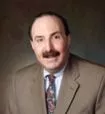Employers are understandably concerned about the possible spread of the Ebola virus in the United States. They have voiced concerns about the spread of infection and appropriate control strategies to be followed in the workplace. At the same time, employers must be aware of legal limitations in employment laws regarding employee privacy and attendant matters that may prohibit certain inquiries, medical exams and other employer actions.
Common questions include, may an employer:
- Request health information from an employee who has traveled to West Africa and may be infected or exposed?
- Take the temperature of an employee?
- Require an employee to stay home from work?
- Require an employee to provide a doctor's note certifying fitness to return to work?
As a general proposition, other than permissible pre-employment physical exams, the federal Americans with Disabilities Act prohibits an employer from making most disability-related inquiries or requiring employees to undergo medical examinations once they have been hired. A very significant exception to this prohibition on employers exists where there is a "direct threat" of an employee posing "a significant risk of substantial harm to the health and safety" of the individual or others that cannot be eliminated or reduced by reasonable accommodation.
In 2009, the Equal Employment Opportunity Commission (EEOC) issued highly instructive guidance on "Pandemic Preparedness in the Workplace and the Americans with Disabilities Act" (http://www. eeoc.gov/facts/pandemic_flu.html) designed to set forth rules for employers dealing with the epidemics posed by SARS, seasonal influenza and the H1N1 virus.
Most experts believe that if the current Ebola scare rises to the level of a pandemic and concomitant "direct threat" status, it clearly will fall within the EEOC's guidance and justify an employer's need to engage in disability-related inquiries and medical examinations. As of this writing, such a declaration has not yet occurred.
As of now, employers should follow the EEOC's preparedness guidance and monitor the Center for Disease Control and Prevention (CDC) Ebola alerts (http://www.cdc.gov/vhf/ebola/ index.html). In the event the CDC declares a pandemic, the answers to the four questions posed above would clearly be yes. For the time being, employers should avoid broad-stroke actions. They would be prudent to limit medical inquiries and examinations narrowly to employees arriving back from visits to affected areas in West Africa, and to employees who have otherwise been directly exposed to Ebola (e.g., medical workers, first responders, airline, mortuary and waste disposal employees) or otherwise been in close quarters with such an individual. In the interest of caution, and as a means of avoiding or limiting liability, employers may wish to consider paid leave and/or work-at-home restrictions for such high risk employees for the duration of the reported 21-day Ebola incubation period. However, the situation is fluid and restrictions may expand. As the EEOC's guidance provides:
In the near term, most experts also believe that employers are well served to help their employees remain calm and avoid hysteria. This may be accomplished, in part, by providing educational material about Ebola, including the limited ways of contracting the disease, and encouraging employees to get flu shots and engage in regular hand-washing. The CDC's Ebola information sheet found at http:/www.cdc.gov/niosh/topics/ ebola is one such useful resource.
We will continue to monitor this delicate and developing situation.
Bennett Pine is a shareholder in Anderson
Kill's New York and Newark offices and is chair of the
firm's employment & labor group. Mr. Pine has broad-based
labor and employment law experience and regularly plays a hands-on
role offering preventative maintenance advice and counseling to
employers in the full range of legal issues affecting the
workplace.
bpine@andersonkill.com
About Anderson Kill
Anderson Kill practices law in the areas of Insurance Recovery, Commercial Litigation, Environmental Law, Estate, Trusts and Tax Services, Corporate and Securities, Antitrust, Banking and Lending, Bankruptcy and Restructuring, Real Estate and Construction, Foreign Investment Recovery, Public Law, Government Affairs, Employment and Labor Law, Captive Insurance, Intellectual Property, Corporate Tax, Hospitality, and Health Reform. Recognized nationwide by Chambers USA for Client Service and Commercial Awareness, and best-known for its work in insurance recovery, the firm represents policyholders only in insurance coverage disputes - with no ties to insurance companies and has no conflicts of interest. Clients include Fortune 1000 companies, small and medium-sized businesses, governmental entities, and nonprofits as well as personal estates. Based in New York City, the firm also has offices in Ventura, CA, Philadelphia, PA, Stamford, CT, Washington, DC, Newark, NJ and Dallas, TX.
The content of this article is intended to provide a general guide to the subject matter. Specialist advice should be sought about your specific circumstances.
